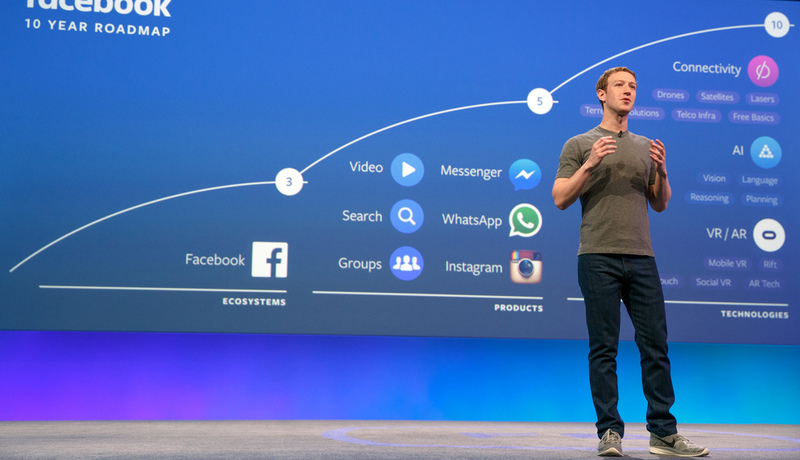From News Feed to Metaverse: A Look Back at Facebook’s Tumultuous Two Decades

Introduction
Facebook, the social media giant, celebrates its 20th anniversary this year. In two decades, it has transformed the way people connect, share, and communicate globally.
This article takes a deep dive into the extraordinary inside story of Facebook, from its inception to the present day. It explores the journey of its founder, Mark Zuckerberg, its impact on human behavior and society, and its role in transforming the advertising industry.
The History of Facebook – From Its Inception to Present Day
In 2004, a young Harvard student named Mark Zuckerberg launched a website called “TheFacebook” from his dorm room. Originally conceived as a platform for Harvard students to connect, it quickly expanded to other universities and eventually opened its doors to the general public.
Renamed simply as “Facebook,” the site gained rapid popularity, attracting millions of users from all corners of the globe.
Over the years, Facebook continued to evolve and introduce new features. It became more than just a platform to connect with friends; it became a hub for sharing life updates, photos, and videos. In 2012, Facebook acquired the photo-sharing app Instagram, further solidifying its dominance in the social media space. In 2014, it acquired the messaging app WhatsApp, broadening its reach even further.
From its humble origins, the company is now headquartered in Menlo Park on the edge of San Francisco Bay. The sprawling campus described as “more like a town than an office” by many, sits on 250 acres, houses about 30 buildings and employs over 45,000 employees – a pool of serious talents where a lot of key players in the industry were homegrown.
Mark Zuckerberg’s Journey as the Founder of Facebook
Mark Zuckerberg’s journey as the founder of Facebook is nothing short of extraordinary. Born in 1984 in New York, Zuckerberg showed an early interest in computers and programming. He developed an impressive skill set and an entrepreneurial spirit from a young age.
While attending Harvard University, Zuckerberg saw an opportunity to create a platform that would connect people and foster social interactions with a definitive account in this platform.
With the launch of Facebook, Zuckerberg’s vision became a reality. Similar to many rising companies, Facebook faced numerous challenges, including legal battles, privacy concerns, and controversies surrounding the platform’s influence on elections. However, Zuckerberg remained dedicated to his vision of connecting the world and continued to push forward.
Facebook’s Impact on Human Behavior and Society
The rise of Facebook has been able to transform human behavior and society as a whole. The platform has revolutionized the way people communicate and share information, breaking down geographical barriers and connecting individuals from different parts of the world, whether they are in Canada communicating with someone in Mexico City.
It has become a powerful tool for social activism, allowing users to mobilize and raise awareness on important issues.
However, Facebook’s influence has not been without its drawbacks. Studies have shown that excessive use of social media, including Facebook, can get out of control and lead to negative mental health outcomes, such as increased feelings of loneliness and depression. The platform has also been criticized for its role in spreading misinformation and facilitating the polarization of society.
Facebook’s Role in Transforming the Advertising Industry
Facebook’s entrance into the advertising industry has been nothing short of transformative. According to insider testimony, in the early days, Facebook relied on traditional display ads and sponsored links to generate revenue. However, as the platform grew in popularity, it developed more sophisticated advertising tools and targeting capabilities.
One of the key features that set Facebook’s advertising platform apart is its ability to leverage user data. By analyzing user behavior, interests, and demographics, Facebook can deliver highly targeted ads to its users. This level of precision has attracted advertisers who value reaching the right audience with their message.
The Battle with Ad Blockers
One of the primary revenue streams for Facebook has been its advertising platform. However, the rise of ad blockers posed a significant threat to the company’s bottom line. Facebook had to adapt and find new ways to deliver targeted advertisements to its users while respecting their privacy preferences.
This ongoing battle between ad blockers and Facebook’s ad ecosystem has shaped the way online advertising functions and has forced the company to continuously innovate and find new ways to engage users.
The Evolution of Facebook’s Features, Site, and Apps

The Rise of Third-Party Websites and Apps
As Facebook gained popularity, it became a hub for third-party websites and applications. The ability to link external sites and access a wide range of services within the Facebook ecosystem revolutionized the way people interacted with the internet. However, this integration also led to concerns about data privacy and security.
The Cambridge Analytica scandal, in which the personal data of millions of Facebook users and accounts were harvested without their consent, served as a wake-up call for the platform, prompting a renewed focus on user privacy and data protection.
The Meta Vision – Facebook’s Rebranding
In a move that surprised many, Facebook recently announced its decision to rebrand as Meta. This rebranding reflects the company’s ambition to expand beyond social media and venture into the realm of virtual reality and augmented reality.
With the development of the metaverse, Meta aims to redefine human interaction and create immersive experiences that transcend physical boundaries. The future of Facebook, or rather Meta, holds the promise of a world where technology blurs the line between the real and the virtual, forever changing the way we connect and engage with each other.
Artificial General Intelligence – The Next Frontier
As Facebook looks toward the future, it is impossible to ignore the role of artificial general intelligence (AGI). AGI refers to highly autonomous systems that outperform humans at most economically valuable work. Facebook’s research in this field aims to create AI systems that can understand and interact with humans more naturally and intuitively.
The potential applications of AGI are vast, ranging from personalized digital assistants to advancements in healthcare and beyond. However, the development of AGI also raises concerns about ethics, privacy, and the impact on human labor.
Similar Technologies and the Metaverse
While AGI represents an exciting frontier for Facebook, the company is also exploring other technologies that have the potential to reshape the digital landscape. Virtual reality (VR) and augmented reality (AR) have gained significant traction in recent years, and Facebook’s acquisition of Oculus has positioned it as one of the key players in the VR space.
As the metaverse takes shape, Facebook aims to create a seamless integration between the physical and digital worlds, offering users a new level of immersion and interaction.
Conclusion
From its remarkable story of humble beginnings as a college networking site to becoming a global social media powerhouse, Facebook has forever changed the way we connect, share posts like we would on personal journals, and communicate.
Facebook’s influence is undeniable and as we celebrate the 20th anniversary, it will be fascinating to see how the platform continues to shape our lives and the world around us.

Celebrate Life’s Milestones in Camella!
Make unforgettable memories in a Camella home.
Our communities are designed to elevate your living experience.


